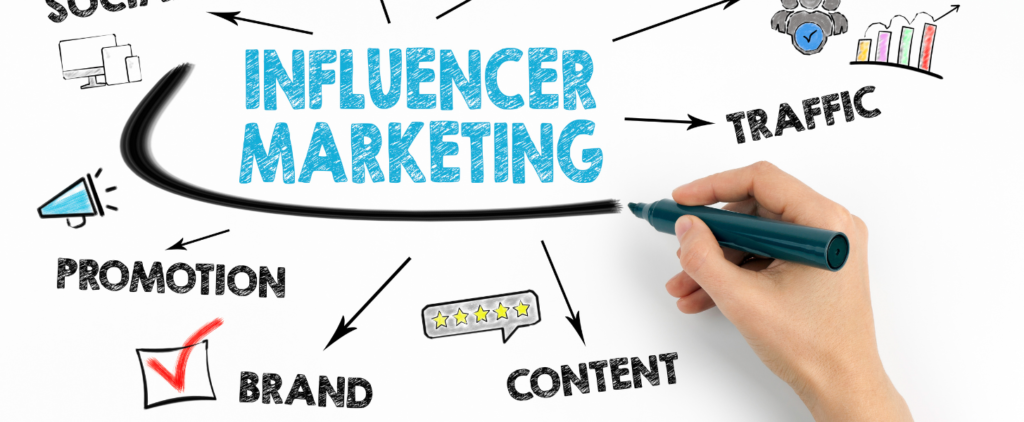
In the evolving landscape of digital marketing, Managed Service Providers (MSPs) are constantly searching for innovative ways to stand out in a competitive market. Traditional marketing strategies often fall short when it comes to building genuine connections and fostering trust with potential clients. This is where influencer marketing comes into play. By partnering with industry experts and influencers, MSPs can extend their reach, enhance their credibility, and effectively engage with their target audience. In this blog, we will explore how MSPs can leverage influencer marketing to expand their market presence and build a more robust brand reputation.
Understanding Influencer Marketing in the Context of MSPs
Influencer marketing involves collaborating with individuals who have a significant online presence and the ability to influence the opinions and purchasing decisions of their followers. These influencers could be industry experts, thought leaders, or even satisfied clients who have a strong following in your target market. For MSPs, influencer marketing offers a unique opportunity to tap into the trust and authority that these influencers have already built with their audiences.
While influencer marketing is often associated with consumer brands and social media personalities, its potential in the B2B space, particularly for MSPs, is immense. The key lies in identifying influencers who have a deep understanding of the industry, a strong reputation, and the ability to convey complex technical information in an engaging and relatable manner.
Why MSPs Should Invest in Influencer Marketing
Building Trust and Credibility: Trust is a crucial factor when businesses decide to partner with an MSP. Potential clients need assurance that they are working with a reliable provider. Influencers, especially those who are respected in the industry, can lend their credibility to your brand, making it easier for potential clients to trust your services.
Reaching New Audiences: Influencers have dedicated followers who value their opinions. By collaborating with influencers, MSPs can access these audiences, many of whom may not have been aware of the MSP’s offerings. This is particularly useful for expanding into new markets or reaching different customer segments.
Creating Authentic Content: Influencers are often content creators who know how to engage their audience effectively. Partnering with them allows MSPs to create authentic, engaging content that resonates with potential clients. This content can range from blog posts and videos to webinars and live streams, all tailored to the influencer’s style and audience preferences.
Enhancing Brand Awareness: Influencer partnerships can significantly boost brand awareness. When influencers talk about your MSP, share your content, or highlight your services, it increases your visibility and helps establish your brand as a leader in the industry.
Driving Engagement and Conversions: Influencers can drive significant engagement through likes, shares, comments, and direct responses to their content. This engagement often leads to higher conversion rates as potential clients feel more confident in choosing a provider endorsed by someone they trust.
How MSPs Can Identify the Right Influencers
Choosing the right influencers is crucial for the success of your marketing strategy. Here are some steps to help you find the perfect partners:
Define Your Goals: Before starting your search for influencers, clearly define what you want to achieve. Are you looking to increase brand awareness, generate leads, or enhance your industry credibility? Your goals will guide you in selecting influencers who can help you achieve these objectives.
Identify Your Target Audience: Understand who your target audience is and which influencers they follow. Look for influencers who have a significant presence among your target demographic and whose content aligns with their interests and needs.
Research Potential Influencers: Use tools like LinkedIn, Twitter, industry forums, and influencer marketing platforms to identify potential influencers. Look for those who regularly post about topics relevant to your industry, have a good following, and engage effectively with their audience.
Evaluate Their Influence and Reach: Check the influencer’s follower count, engagement rates, and the type of content they share. However, don’t just focus on the numbers. Assess the quality of their audience engagement, the relevance of their content to your services, and their overall reputation in the industry.
Consider Micro-Influencers: Sometimes, micro-influencers—those with smaller, highly engaged audiences—can be more effective than those with massive followings. They often have niche expertise and a more personal connection with their audience, which can lead to more authentic endorsements.
Building Successful Influencer Partnerships
Once you have identified potential influencers, the next step is to build a strong partnership. Here’s how MSPs can establish and maintain effective influencer relationships:
Reach Out with a Personalized Approach: Influencers receive numerous collaboration requests, so it’s essential to stand out. Personalize your outreach by mentioning specific content of theirs that you enjoyed or explaining why you think they’d be a great fit for your brand. Show that you’ve done your homework and are genuinely interested in working with them.
Offer Value to the Influencer: Influencer partnerships should be mutually beneficial. Beyond financial compensation, think about what value you can offer the influencer. This could be exclusive access to your services, opportunities for them to grow their audience, or collaborative content that showcases their expertise.
Collaborate on Content Creation: Involve influencers in the content creation process. Let them share their insights and incorporate their unique voice into the content. This collaboration ensures that the content is authentic and aligns with the influencer’s style, making it more appealing to their audience.
Set Clear Expectations and Guidelines: To avoid misunderstandings, establish clear expectations regarding content creation, deadlines, promotion strategies, and compensation. Ensure both parties agree on the key messages and goals of the campaign.
Monitor and Adjust: Influencer marketing requires ongoing management. Monitor the performance of your campaigns, assess what is working and what isn’t, and be ready to make adjustments as needed. Regularly check in with your influencers to get feedback and discuss ways to optimize the partnership.
Types of Influencer Content That MSPs Can Leverage
The type of content you create with influencers can significantly impact your campaign’s success. Here are some effective content formats for MSPs:
Thought Leadership Articles: Collaborate with influencers to write thought leadership pieces that address key industry challenges and showcase your MSP’s expertise. These articles can be published on your blog, the influencer’s platform, or even industry publications.
Webinars and Live Streams: Host webinars or live sessions with influencers to discuss relevant topics, share insights, and answer audience questions in real-time. This format allows for direct engagement with potential clients and demonstrates your knowledge and authority in the field.
Product Reviews and Tutorials: If you have specific tools or services that set you apart from other MSPs, have influencers review or create tutorials about them. Authentic reviews and tutorials can effectively communicate your value proposition and drive conversions.
Case Studies and Testimonials: Work with influencers to develop case studies or testimonials based on their experience using your services. Real-world examples and success stories are compelling tools for building trust and demonstrating your MSP’s impact.
Social Media Campaigns: Use influencers to promote your services on their social media platforms. This could include sharing your posts, creating original content about your services, or even running joint contests or promotions.
Measuring the Success of Influencer Marketing for MSPs

To ensure that your influencer marketing efforts are successful, it’s essential to track and measure their impact. Here are some key metrics to monitor:
Engagement Rates: Monitor the likes, comments, shares, and overall engagement on the influencer’s posts related to your campaign. High engagement indicates that the content resonates with the audience.
Reach and Impressions: Measure how many people saw the content. Reach and impressions help you understand the visibility of your campaign.
Lead Generation: Track the number of leads generated through influencer content. Use unique tracking links, promo codes, or specific landing pages to measure this effectively.
Conversion Rates: Measure how many leads from influencer campaigns convert into paying clients. This metric helps you assess the direct impact of influencer marketing on your sales.
Return on Investment (ROI): Calculate the ROI of your influencer marketing campaigns by comparing the total costs (including influencer fees and production costs) with the revenue generated. This helps you determine the overall effectiveness and profitability of your influencer partnerships.
Brand Sentiment and Awareness: Use social listening tools to gauge the overall sentiment and awareness of your brand following influencer campaigns. This qualitative data provides insights into how your brand is perceived in the market.
The Future of Influencer Marketing for MSPs
Influencer marketing offers MSPs a unique opportunity to build credibility, expand their reach, and engage more effectively with their target audience. As the digital landscape continues to evolve, the role of influencers will only grow more significant. By strategically partnering with industry experts and creating authentic, valuable content, MSPs can enhance their brand reputation and drive meaningful business growth.
Embrace the power of influencer marketing today!
